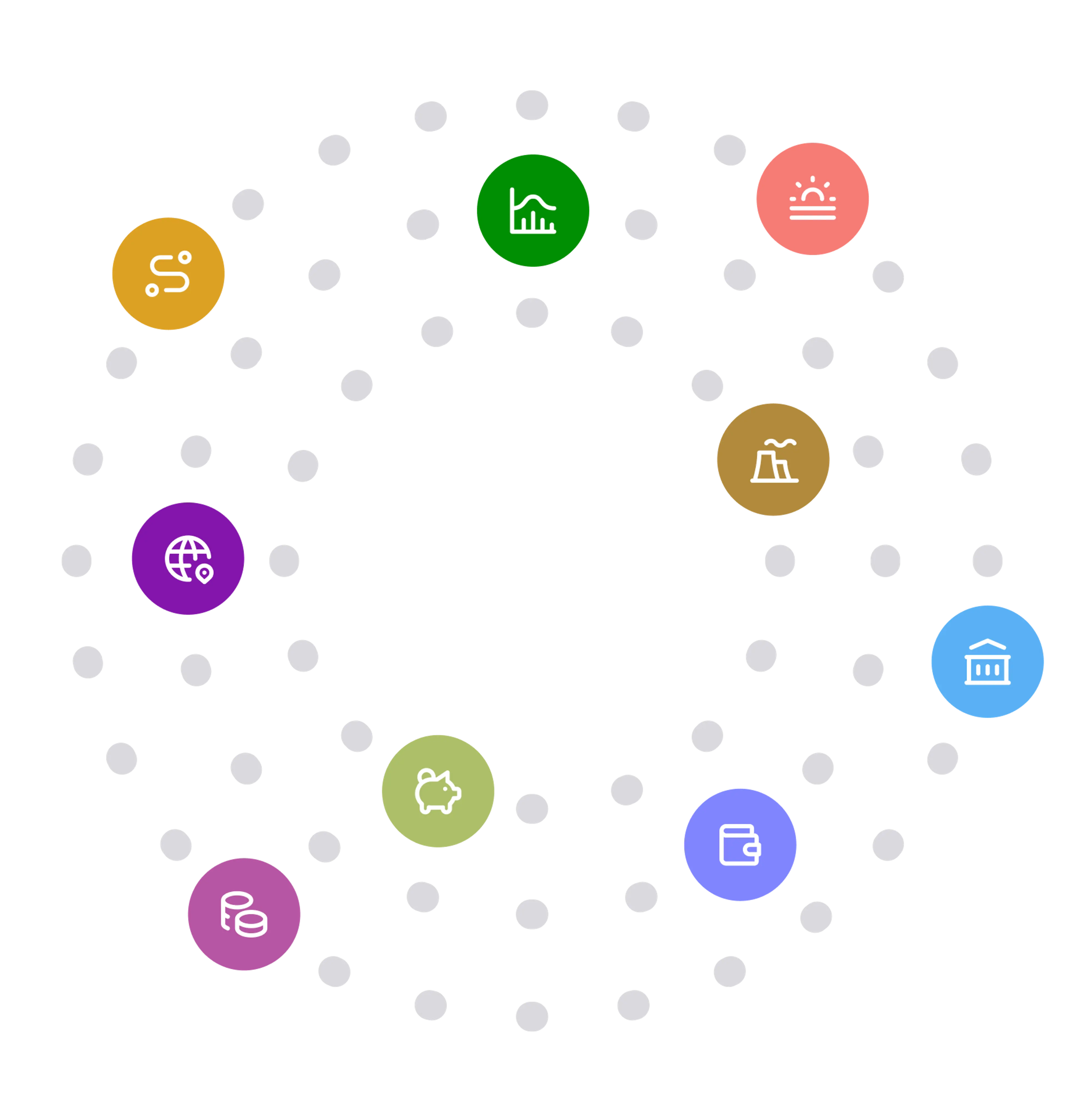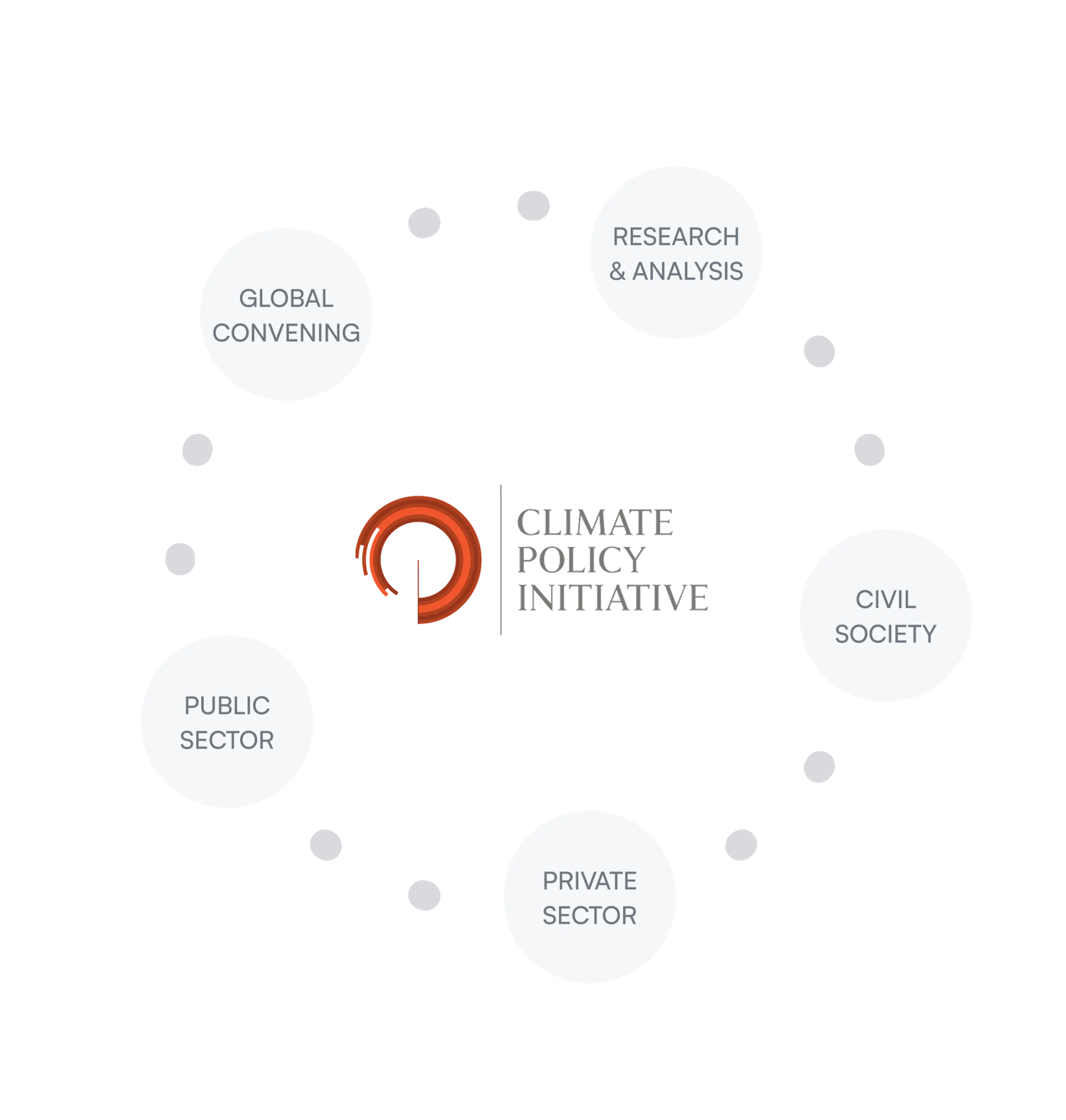Facilitating concensus to drive global climate action
The Brazil Climate Finance Reform Compass helps align government, civil society, and the private sector on the full range of financial architecture reforms needed to maximize Brazil's climate finance opportunities.
Learn More
A framework for aligning climate targets and milestones
Brazil’s leading role in global climate diplomacy provides the country with a unique opportunity to strengthen its climate finance architecture. Brazil has long been a pioneer in aligning climate action with sustainable development, advancing innovative policies, financial instruments, and institutional reforms. Yet, the landscape remains fragmented, with overlapping initiatives and limited mechanisms to ensure coherence, transparency, and accountability across institutions and stakeholders.
The Climate Finance Reform Compass offers a framework to enhance accountability and guide reform across the climate finance ecosystem. Based on the COP28 Global Climate Finance Framework, the Compass brings together commitments and actions from governments, development banks, private investors, and international partners, organizing them into thematic areas that together form a comprehensive map of reform efforts.
Building on this foundation, the Brazil Climate Finance Reform Compass applies the global framework to the national context. It examines key reform priorities and challenges within Brazil’s climate finance system, structured around the same thematic pillars as the global Compass but adapted to reflect the country’s institutions, regional forums, leading local initiatives, financial mechanisms, and policy landscape.

How the Compass works
Themes
The Compass organizes reform efforts around eight themes, which align with the principles outlined in the COP28 UAE Leaders’ Declaration on a Global Climate Finance Framework.
Within each theme, the Compass focuses on specific reform topics and challenges that are central to strengthening Brazil’s climate finance architecture. These topics highlight the roles of different actors across the national finance ecosystem, such as government institutions, development banks, private investors, and civil society, and how they can work together to advance reforms.
Topics
Commitments and Ambitions
For each topic, the Brazil Compass suggests long-term goals for 2030 that advance reform objectives. It also provides an overview of the current national status, mapping key institutions, stakeholders, and ongoing initiatives, as well as policy instruments and financial mechanisms that underpin climate action in Brazil.
Milestones
Rio Climate Week
Broaden institutional investor participation in sustainable finance
Where relevant, the Compass also outlines key milestones and decision points aligned with upcoming national and international events that will shape Brazil’s climate finance agenda. This structured approach helps identify progress, gaps, and opportunities for coordination, enabling Brazil to take a leadership role in advancing coherent, transparent climate finance reforms in the years ahead.
The Compass Team

Jyoti Sharma
Project Lead
Jyoti Sharma leads the Climate Finance Reform Compass initiative. Based out of the San Francisco office of Climate Policy Initiative, Jyoti drives the development and implementation of the Compass at both global and country levels, guiding efforts to align climate finance reforms with national and international priorities.

Gabriela Zangiski
Senior Analyst
Methodology
The Brazil Compass builds directly on the Global Climate Finance Framework adopted at COP28, while incorporating Brazil-specific priorities and perspectives. The eight global thematic areas have been contextualized through desk research, policy mapping, and stakeholder interviews with representatives from Brazil’s public institutions, development banks, private sector, and civil society.
Each topic is qualitatively assessed based on Brazil’s progress toward its 2030 goals—evaluating the strength of institutional frameworks, policy coherence, financial flows, and implementation capacity. This process enables a nuanced understanding of where Brazil is heading, where gaps remain, and where targeted reforms could enhance alignment and accountability among actors.
The Brazil Compass is designed to be an evolving, living tool. It is refined and updated periodically to reflect new developments, policies, priorities, and stakeholder input, ensuring that it remains a relevant guide for tracking reform and fostering coordination within Brazil’s climate finance system.

Get in touch
To share feedback or contribute to future updates, please contact us: compass@cpiglobal.org (opens a new window)